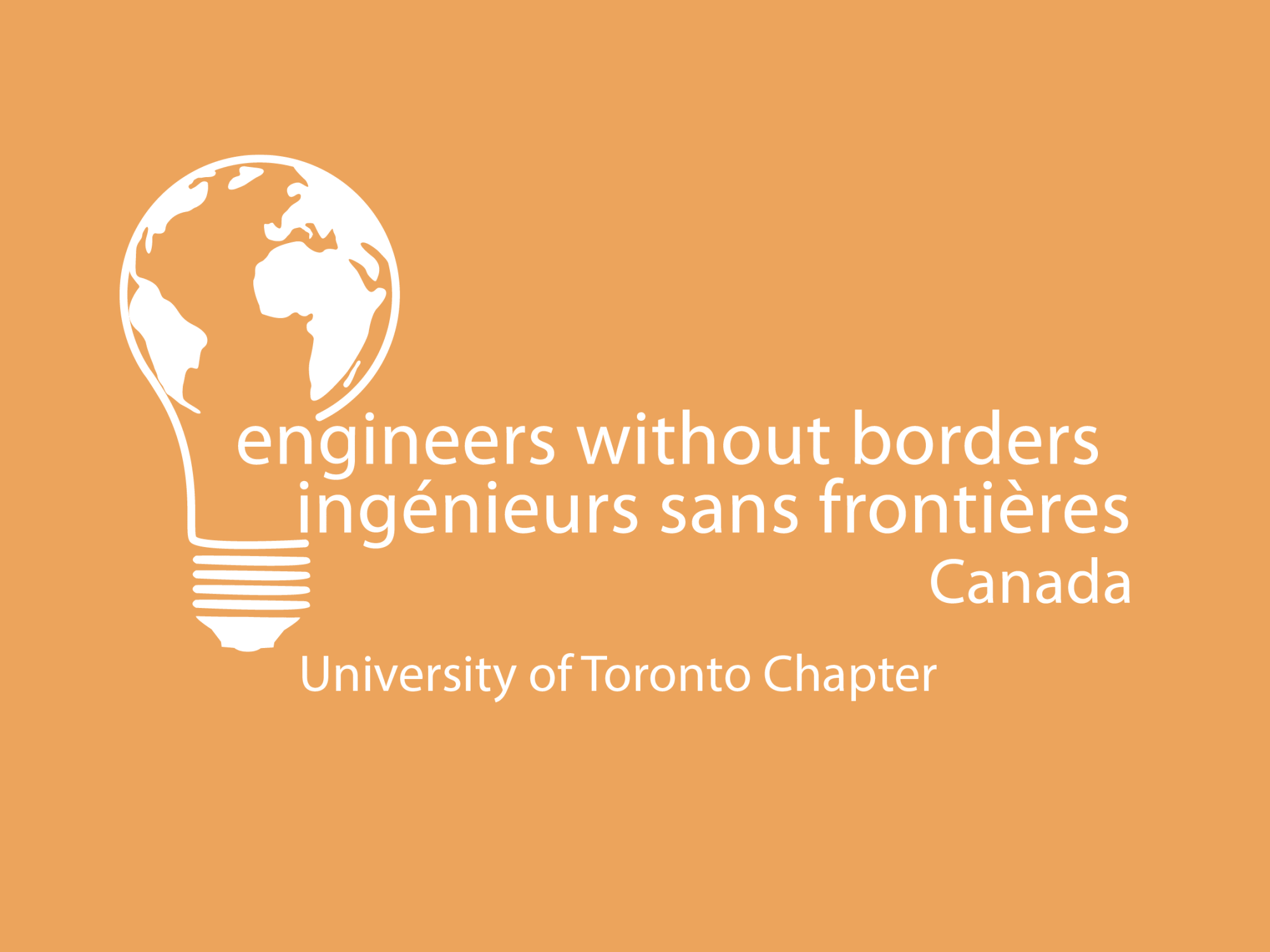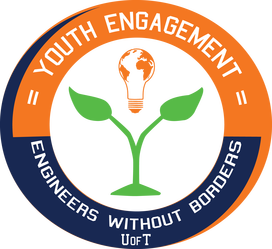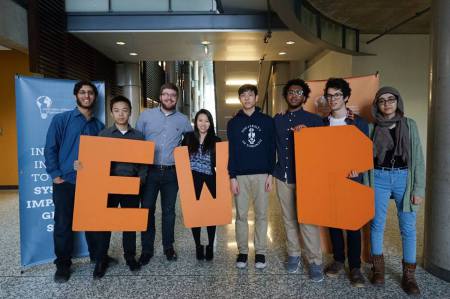
Engineers Without Borders
University of Toronto Chapter
Origins: Future Engineers Society
Earl Haig Secondary School
At the start of grade 12, I noticed the lack of a focused engineering club at my high school and decided to found such a club focused in inspiring future engineers, developing future engineering students, connecting with engineering professionals, and organizing engineering-related events.
The club organized multiple engineering-related events at school, ranging from guest speakers to mini-competitions to the annual engineering competition at my high school.
After the initial year, the club was merged with my high school's Engineers Without Borders chapter, which I mentored. Together, it still carries out the same functions as the original club, but it also participates in EWB sponsored events.
Youth Engagement Portfolio
During first year (2016-2017), I was a part of Engineers Without Borders, University of Toronto chapter, in the Youth Engagement portfolio.
I joined since it serves a mission of helping younger students develop engineering design skills to make social change. Through this experience, I believe that I am also making social change. I strongly believe that as a professional engineer, it is my mission to serve the community and help make a difference.

EWBoosters and YAIT
EWBoosters is the outreach branch of Youth Engagement that provides high schools in the GTA with resources to start their own EWB clubs. It is also responsible for hosting engineering and global development workshops, as well as hosting the annual Youth Action Initiative Toronto (YAIT) conference and case competition to be held in May.
As the contents director of EWBoosters this year, I was given the task of developing engineering and global development workshops, as well as preparing the materials for Youth Action Initiative Toronto. Some of my work included a founding package for students interested in starting new EWB clubs, an engineering design process workshop, and a design brief for YAIT. (Selected content will be available in June)
This year’s Youth Action Initiative Toronto is centred upon the opportunity of developing solutions to the housing crisis in the GTA. Student teams will be assigned DFXs and will compete for the best solution in each DFX category, as well as the best overall design.
Innomasters
Innomasters is a mentorship program for which a team of high school students are paired up with mentors from EWB U of T, and work on a Praxis/ESP style design project in their local community through the term. It is split into stages (including a design brief, and a recommendation report). The project concludes in a final showcase that takes place in April.
Volunteering as a mentor for this term, I guided a team of students from University of Toronto Schools (UTS). They developed upon the opportunity of WiFi at UTS since they experienced the poor WiFi system at their school. According to the survey that they conducted, the WiFi coverage was very poor in certain areas of the school, and that there is no restriction on using WiFi for purposes other than studying (video games, video watching/streaming, social media, etc.). Also, from interviewing the stakeholders, they found out that the current bandwidth is inadequate.

Youth Engagement Team from Innomasters
As I guided them through the project, they learned about the basic engineering design model in Praxis (Frame, Diverge, Converge, Represent), and I shared them with tools and techniques (such as Morph Charts, Pugh Chart, pairwise comparison, etc.) that they can use for each stage of design. I also helped them with any background and technical knowledge in hardware related to networks.
In the final showcase, the team recommended a solution that integrated existing methods (such as relocating the routers) and future technologies (such as Li-Fi). The team was presented the award for the best research.